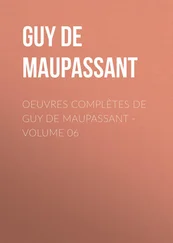“Get out then,” he said. “Get out. You know where the door is. You’ve been looking at it long enough.”
Tramping along, swinging her arms in unison with the other women in the drill squad and listening to the rhythmic crunch of heels on gravel, imposed a cadence to Vera’s thoughts. Over and over she repeated to herself that she would have stayed at home if there had been any hope of saving Earl from his father. But she knew there was no chance of that because Earl refused to show any fight.
“Stand up for yourself!” she had told him. “When the old man yells for you to come downstairs for one of those rides, don’t. What’s he going to do? He can hardly stagger over level ground when he’s that way, so how’s he going to manage stairs to get at you?”
But Earl always went to his father when he called. It was a mystery to Vera. As the saying went, God helps those who help themselves. Vera didn’t see how she could be expected to go one better than God. What was there left for her to do, except save herself?
In the Army, for the first time in two years Vera felt she could breathe. The skies that summer were high, cloudless, a distracting blue across which planes of the Commonwealth Air Training Plan darted and swooped. Wheeling left and wheeling right to a drill sergeant’s commands, Vera felt freer than when she had idled away her afternoons with Cokes and cigarettes and gossip. In the barracks it was interesting and exciting to talk to so many different kinds of girls, middle-class idealists full of patriotic talk and tough girls with pimples on their chins who had fled bad families for the chance to eat three square meals a day and get their teeth fixed at government expense. So many different girls with so many different reasons, an army like any other history had ever known, except that this one was female.
It was the sense of movement in the Army that Vera liked best. A short time in Regina, a month of basic at Dundurn and then she was dispatched to Kitchener, Ontario, for trades training. Always new faces, new scenery, new things to learn. Because she had her Grade Ten, Vera’s superiors had suggested she might train as a clerk, but when she thought of Mabel and Phyllis and secretarial school she asked to be made a cook instead.
An adventure impossible to explain or express. Eastbound, leaving behind everything she had ever known, Vera wrote her first letter home, not to her father but to Earl. Ostensibly it was written to provide information as to where she was going and how she could be reached, but in reality she was seeking a confidant, a confidant who had known the old Vera and could draw comparisons with the new. That was Earl. She wrote him everything. She told of the smart dining car with linen tablecloths and silver cutlery where she had recklessly splurged, treating herself to a meal of Winnipeg goldeye as if she had done this sort of thing every day of her life. It was the uniform, she explained. In uniform you were suitably dressed for any function, a woman could go anywhere in uniform – to a fancy dining room, to a concert. A uniform was a wonderful disguise. No one had any idea whether you were rich or poor, belonged or didn’t belong. And you always looked smart. Vera proudly quoted a line to her brother from the brochure, “Women in Khaki.” “C.W.A.C. uniforms have been acknowledged by leading dress designers to be the smartest in the world.” There it was, from the highest authority.
Vera tried to convey, too, how she was now a traveller. She wanted to give Earl some idea of the sprawl and space and harsh grandeur of the country she was passing through. She wrote to him of what she had witnessed early one morning as her train rattled through Manitoba; wrote of a vast, distant field crawling with hundreds of minute figures. The scene would forever have remained a puzzle if the track had not curved just then, carrying her nearer and nearer. Vera had laughed aloud when the tiny figures grew larger and larger, resolving themselves into soldiers bending and straightening under the brilliant morning sun. They were stooking. On a whim an officer had turned a day of back-breaking labour for some farmer into a few minutes of diversion on a route march for a company of men. Now the troops were larking about, ramming the butts of sheaves into the soil and tossing the heavy heads together, battle-dress drab against the sun-drenched gold of stubble. As the train rumbled by, reducing speed on the bank of the curve, the men closest to the tracks waved to the passengers who were the first witnesses to their joke, looking not at all like soldiers but like boys on an outing, and one or two threw their caps exuberantly into the air, their mouths yawning in a soundless cheer.
Vera tried very hard to get things right in her letters, to capture the strangeness of being far from home. The descriptions came so thick and fast her pen could scarcely record them. There were the prosperous farms of old rich Ontario with acres of tall corn and huge barns and sleek black and white cows with heavy udders, dreaming in the flickering shade of great trees she guessed were maples. And she described the enormous temple of Union Station in Toronto which by rights ought to have seemed empty and hollow because of its soaring roof, but which bustled and teemed with soldiers and airmen and sailors and women and children all rushing about every which way, hugging and kissing while the arrivals and departures rolled on like some awful announcement of the doom of journeys missed, chances never seized, life never lived. So hurry up! And when she came to the end of her trip, a young girl in a town in Ontario, she wanted, out of the fullness of her nineteen-year-old heart, to write a letter that said, “Tell everyone in Connaught that Vera Monkman is alive and kicking !” Both words underlined three times for emphasis. She didn’t write any such words, however. Instead, she signed it, “Your loving sister, Vera,” and enclosed a dollar of her pay for Earl, to show she was thinking of him and also to demonstrate to her father she was doing just fine, thank you very much, without him. Because, for as long as Vera corresponded with Earl, filing her reports on life in the Army, she never sat down to write without imagining two faces reading her letters, one Earl’s, and the other, hovering just over his shoulder, her father’s.
Not that everything about the Army was wonderful. By the time she was transferred to Saint Anne de Bellevue Vera was having second thoughts about being a cook. In summer the kitchens were hotter than the hubs of hell and the noise, the incessant rattle of pans and clash of pot lids, the thin steamy stench of watery vegetable soup, the smell of raw chickens and burned food so jangled her nerves and upset her stomach that she found it next to impossible to eat. For days on end she could keep nothing down but weak tea, soda biscuits, and Jello. Yet never once did Vera present herself on sick parade. What if they found something really wrong and she was given a medical discharge? The last thing she wanted was to be forced to quit the Army just when she was proving herself so able. Because she was able. In six months Vera had been promoted to lance corporal in recognition of her general efficiency, precise and accurate record-keeping, and careful management of supplies. There were predictions she would make sergeant before long.
It was difficult to bring her success to Earl’s and her father’s attention without seeming to brag, bragging being much disparaged among the Monkmans. The solution proved simple in the end. Vera had a studio portrait taken of herself in uniform, taken in three-quarter profile so that the stripes on her arm were clearly visible. She was certain they would be noticed. Of other matters, which reflected less directly on her, it was not necessary to be so modest. She had the excuse that her descriptions to her brother of extended leaves taken in the fabulous cities of the U.S.A. were justified because of their educational value. If they also happened to cast Vera in a sophisticated, worldly light, maybe that couldn’t be avoided.
Читать дальше












